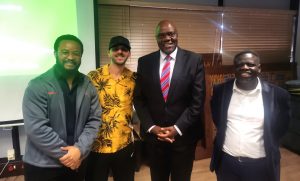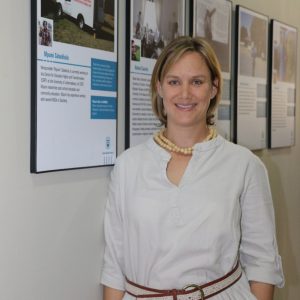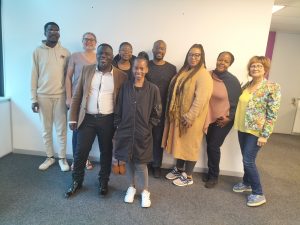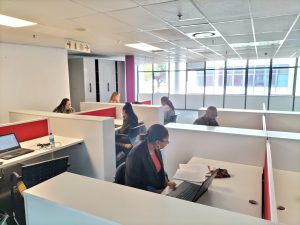Sociology Gallery
September 2023
The UJ Department of Sociology held a special seminar focusing on the impact of the 4IR on society. The four presenters were: Prof Bhaso Ndzendze (Politics and International Relations, UJ), Dr Michael Kwet (PDRF, UJ), Prof Arthur Mutambara (Director, Institute for Future Knowledge, UJ), and Prof Tapiwa Chagonda (UJ Sociology).
August 2023
Congratulations to Prof Pragna Rugunanan who has been elected as the Vice Dean of Research, Faculty of Humanities.
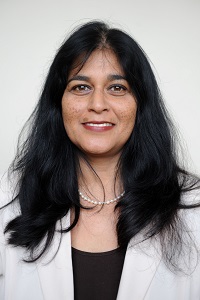
June 2023
Congratulations to Prof Ingrid Palmary who received a B3 NRF Ranking.
March 2023
The Department of Sociology has initiated a new programme for PhD candidates in 2023. The quarterly PhD retreats aim to provide comprehensive support to our students throughout their academic journey.
The first retreat was successfully launched on 27th and 28th March 2023. The two-day retreat focused on the vital aspect of “getting organised” in the PhD process. Our esteemed PhD co-coordinators, Professor Tapiwa Chagonda and Dr Letitia Smuts, led insightful discussions on what to expect during the PhD process. Additionally, they provided valuable guidance on how to organise and read academic materials efficiently.
Moreover, the retreat also delved into constructive planning techniques, such as mind-mapping one’s chapters and thoughts, to enhance the writing process. We believe that this programme will significantly benefit our students, and we look forward to supporting them throughout their academic endeavour.
January 2023
Congratulations to Prof David du Toit on his promotion to Associate Professor in the Department of Sociology.
October 2022
Promotions: Congratulations to Prof Kezia Batisai who was promoted to full professor and Prof Siphelo Ngcwangu who was promoted to associate professor.
October 2021
New staff member: Welcome to the UJ Department of Sociology, Prof Patrick Bond
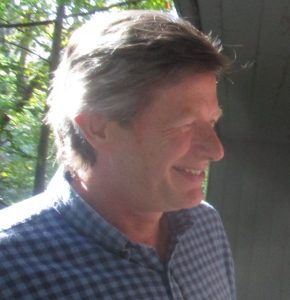
Patrick Bond is a political economist, political ecologist and scholar of social mobilisation. From 2020-21 he was Professor at the Western Cape School of Government and from 2015-2019 was a Distinguished Professor of Political Economy at the University of the Witwatersrand School of Governance. From 2004 through mid-2016, he was Senior Professor at the University of KwaZulu-Natal School of Built Environment and Development Studies and was also Director of the Centre for Civil Society. Patrick also served as visiting professor at Gyeongsang National University, South Korea and as an associate of the Leverhulme Centre for the Study of Value at the University of Manchester. On sabbatical, he was a visiting scholar at the University of California/Berkeley Department of Geography in 2010-11, and at York University’s Department of Political Science and Faculty of Environmental Sciences in 2003-04. He lectured from 1997-2004 at the Wits School of Governance where he was the founder of the doctoral programme and co-director of the Municipal Services Project and was an assistant professor at the Johns Hopkins School of Public Health in 1994-95. He has held visiting posts at a dozen universities and presented lectures at more than 100 others.
September 2021
New staff member: Welcome to the UJ Department of Sociology, Prof Melanie Samson

Melanie Samson is an Associate Professor in Sociology at the University of Johannesburg. She previously lectured in human geography at the University of the Witwatersrand. Prior to joining academia, Melanie worked in the South African trade union movement and for local and international NGOs focusing on women’s and informal workers’ struggles for justice. For the past decade, Melanie’s primary body of research has arisen out of and contributed to her political work accompanying reclaimer (waste picker) movements. Related to this, she recently facilitated a multi-party participatory process to develop the national government’s “Waste Picker Integration Guideline for South Africa. Melanie has published widely on issues including feminist political economy; articulations of gender, race and class; the production of value outside of wage labour; political ecology; labour and organising in the “informal” economy; nationalism; and the centrality of space in social analysis. Melanie is passionately committed to teaching and supervision that enables and inspires students to critically interrogate and contribute to transforming the world around them.
August 2021
New staff member: Welcome to the UJ Department of Sociology, Ms Ragi Bashonga
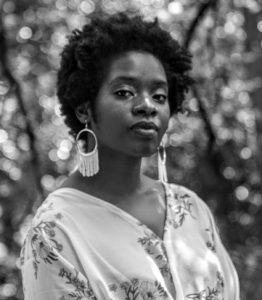
Ragi Bashonga joined the UJ Sociology department as an NGap lecturer in April 2021. She is a storyteller and lover of poetry, curious about the world. Her ongoing PhD study Mirrors in Frames: Identity and Belonging in young Congolese people in South Africa explores the intersections of various identity markers – race, class, gender, nationality; exploring how these play into a broader understanding of in-continent migration and its implications for Africanity. The thesis hopes to tell a story of young immigrants and the complexities of life on the continent. Perhaps even more importantly for Ragi, the study brings in novel ways of exploring life histories by marrying portraiture and poetic inquiry; and in some ways providing a kind of therapeutic methodology.
Ragi has worked as a researcher for over 7 years. Having begun as a sociology tutor at UJ in 2012, Ragi went on to work in the Gender Focal Point unit at the National Department of Social Development. She then worked as a researcher at the Human Sciences Research Council (HSRC) while completing her Master’s degree in Industrial Sociology and Labour Studies at the University of Pretoria. In late 2019, Ragi joined Isandla Institute as a Policy Researcher working on issues of urban development and urban citizenship. She currently serves as a youth representative to the United Nations for in International Sociological Association (ISA).
Having an interest in the politics of identity, gender, and critical race studies; Ragi pursues academia through the lens of the arts and the complexities of the human experience.
“You can make the world beautiful just by refusing to lie about it.” ~ Iain S. Thomas
August 2021
Promotions:
Prof Pragna Rugunanan has been promoted to Full Professor and Dr Letitia Smuts has been promoted to Senior Lecturer. Congratulations to both Prof Rugunanan and Dr Smuts! The department is very proud of you!
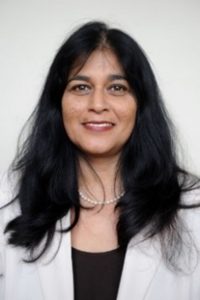
Prof Pragna Rugunanan, the current head of the UJ Department of Sociology, has been promoted to full professor. Prof Rugunanan’s co-edited book (with Xulu-Zama, N) on ‘Migration in Southern Africa’ has been submitted to Springer Press for publication in 2021/2. She was the guest editor for Gender Questions for the special edition on ‘Transnational Migration, Gender and Sexuality in the Global South’. https://orcid.org/0000-0001-7430-9201
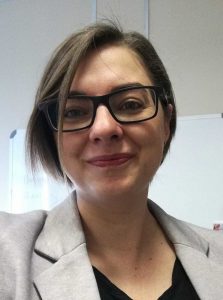
Dr Letitia Smuts has been promoted to senior lecturer. She and her team are currently working on an NIHSS project called FruSTRAIGHTingthenorm (https://frustraightingthenorm.com/) and her latest publication appears in the journal Sexualities. Smuts, L. 2021. ‘Decently transgressing: expressions of female heterosexuality and the discourses of (hetero)sexual pleasure in South Africa’, Sexualities. doi: 10.1177/13634607211037479.
July 2021
New staff member: Welcome to the UJ Department of Sociology, Prof Ntabiseng Motsemme
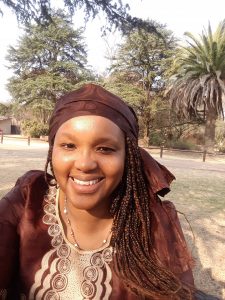
Prof Nthabiseng Motsemme is currently an Associate Professor at the University of Johannesburg, Sociology Department. She previously served as Academic Director at the National Institute for the Humanities and Social Sciences (NIHSS), and Postgraduate Director at the University of KwaZulu-Natal, while also holding research associate positions at the University of South Africa and Nelson Mandela University. Nthabiseng’s work was celebrated at the African Feminist international conference held in 2018, entitled after her paper: ‘The Mute Always Speak’: (Re) imagining and re-imaging feminist futures; hosted by the Rhodes University Department of Literary Studies in English and Department of Fine Arts, which brought together scholars from across the humanities and social science disciplines. Nthabiseng completed her doctoral studies in 2011 and her scholarship focuses mainly on African working-class women’s experiences, voices, struggles and agencies, and is interdisciplinarity and methodologically reflexive. She is also an editorial board member of the African Identities journal.
January 2021
Promotion: Dr David du Toit
Congratulations to Dr David du Toit who has been promoted to Senior Lecturer in the Department of Sociology.
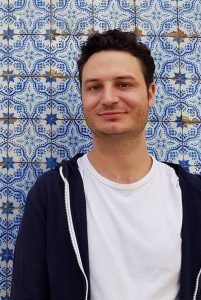
November 2020
The Department of Sociology shines at the 2020 Faculty of Humanities Teaching Awards!
Congratulations to Prof Tapiwa Chagonda who was awarded the Innovation in teaching and learning award, and to Prof Grace Khunou who was awarded the Top Post Graduate teaching award. This is a testament to their enormous dedication and commitment.
We also had many colleagues nominated for awards this year – Dr Letitia Smuts, Prof Ingrid Palmary, Dr Siphelo Ngcwangu. Congratulations on being nominated.
October 2020
Congratulations Dr Letitia Smuts
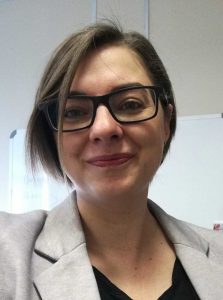
Dr Letitia Smuts was on Daily Thetha, an educational youth talk show that broadcasts on SABC 1 from Monday to Thursday from 10:30 till 11:30 and boasting over 1.5 million viewers, on Thursday,15 October. The title of the episode was: ‘The Role of Society in Decision-making’. She did a brilliant job in addressing why society has so much power over our decisions; the notion of acceptance and difference; the negative aspects of “Keeping up with the Joneses” and living above one means; the pressures of societal heteronormative views and how it informs gender performance and choices around (heterosexual) marriage; the environment she tried to create for her students in terms of embracing and celebrating diversity; and embracing ones authentic self in the light of societal expectations and messages. Please click on this link for the interview: https://www.facebook.com/dailythethaSABC1/videos/632992927363780/
October 2020
Congratulations to Dr Trevor Ngwane
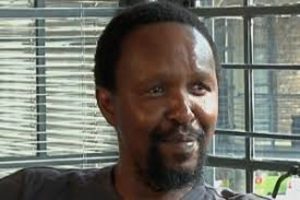
Dr Trevor Ngwane (senior lecturer, UJ Sociology) has been selected as the new director for the UJ Centre for Sociological Research and Practice. The UJ Department of Sociology is actively engaged in critical social research as well as focusing on sociological practice and the CSRP provides one vehicle for this commitment. The Centre for Sociological Research was founded by the Department of Sociology in 2000. Over the course of the next six years, staff and students of the Department of Sociology produced a range of publications and other research outputs to build the centre and billed the centre as a co-host of its regular seminar series. The centre was established to the extent that it could become an independent unit within the University of Johannesburg in 2007. In 2014 the CSR reverted to the Sociology department, and in 2016 it was reconfigured as the Centre for Sociological Research and Practice based in the UJ Department of Sociology.
August 2020
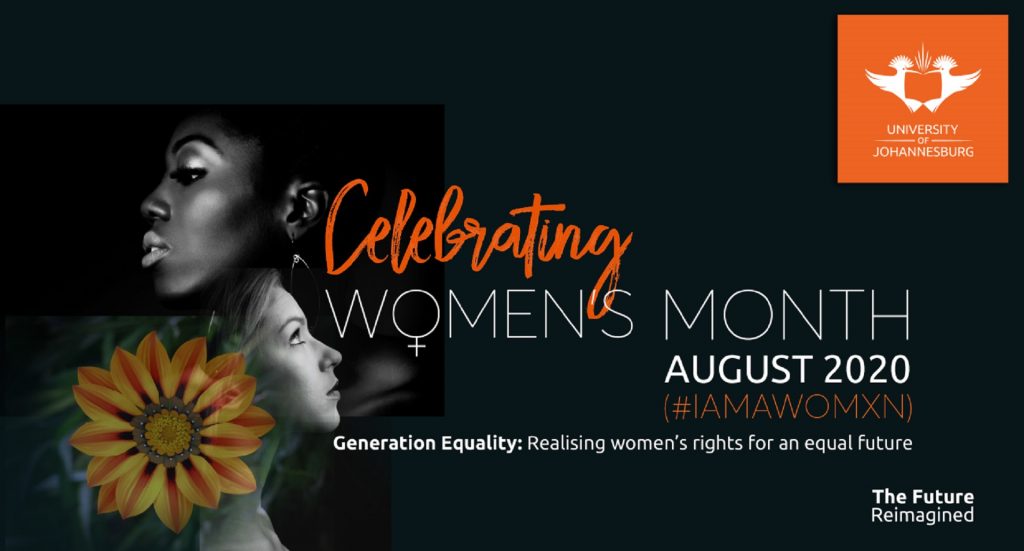
Women’s struggle: Sweeping out the dirt that has been left under the carpet?
By Malehoko Tshoaedi
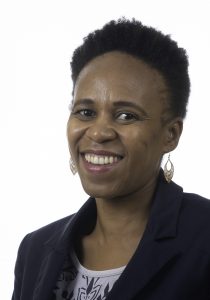
August is a month to muse. I mull over the infinite problems women have in our country as I assess whether are we making headway in addressing them or not. As I reflect on this year’s Women’s Day, I think of the struggles waged by those who came before us. The wholly altruistic bravery the many women who came before us showed is unprecedented. The sacrifices they made for the future they would not live to see is beyond belief. Indeed, it is scarcely conceivable that they made sacrifices for the majority of oppressed people whom they did not even know by name. As I reflect on this year’s Women’s Day celebration, I look at my privileged position. I am an associate professor at the University of Johannesburg. This is a position that my mother and scores of women in my family and my community do not have access to. This is a position in which many of my peers from my community still have no means of entry. In fact, for many women of my background, the university is still a far-fetched dream, an ivory tower that is only for the select few. Many women of my background have not seen the true benefits of democracy. They still live in poverty with poor access to healthcare and poor education for their children. The list is endless. The circle of poverty is likely to continue. Many live in fear of Sexual and Gender-Based Violence in their homes and communities.
While I am grateful to those that paved the way for me to be in this privileged position, I still ask: what were these sacrifices for? Is it enough that a few of us are in these privileged positions and have become exceptional black women within the academy? How am I using my positionality as someone with a working-class background to challenge issues of inclusion and exclusion in the academy? How do I fight for the inclusion of more women like me in the academy? How do I use my position in the academy to forge ahead of the continued struggles for the advancement of the majority of those who come from underprivileged communities? How do I use my position to advance the continued battles of the marginalised LBGTQI+ community? As I muse about all this, I ask myself if I have done enough to support young black women students in our university system. I wonder if I am doing enough to mentor and support young black women who are my students, encouraging their dreams to grow in the academy and beyond. I wonder if I am doing enough to challenge the university on social justice and gender equality issues. As I pound at the keys of my laptop, I think of the words of Tony Morrison, ‘Liberation means you don’t have to be silenced’ and Audre Lord, Silence will not protect you? What do these words mean in my context?
As I continue to muse about all this, I think of close to 20 000 women who marched in 1956. How dangerous it was for them to be involved in that march. But they dared the vicious apartheid system. They knew that living under apartheid killed the souls of many black folks. More importantly, they knew that apathy was detrimental to their survival. So, they challenged the abuse of power of the racist regime and fought for social injustices in the country. And now, as I muse in the post-apartheid dispensation, the women’s struggles that have been conveniently swept under the carpet become clearly visible. I ask myself, what are the risks I am willing to take to contribute to social justice and reconstruction in this country? In her book titled, ‘On Intellectual Activism.’ Patricia Hill-Collins’ argues that intellectuals have a critical role to play in making demands for social change and justice, transforming the hierarchical power relations that serve to exclude the marginalised. Certainly, this resonates with me. Yes, I am ‘armed with knowledge and ideas and tools to contribute towards forging a bright new future, especially for women in our country. As I ponder this, I puzzle where to start to sweep out the dirt that has been placed under the carpet for so long. And who should I call to undertake this venture with me?
The UJ Department of Sociology celebrates Women’s Month 2020!
#4Questions: Prof Kezia Batisai
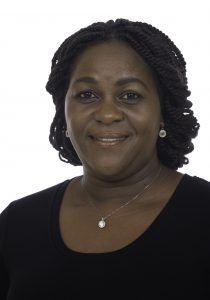
What does Women’s Month mean to you?
Women’s month, for me, is both a reminder and a space. There is no doubt that I am, and I remain a woman within and outside August. As such, women’s month is a symbolic reminder to society that I am a woman; and it doubles as a practical space where I articulate the everyday, which is similar to what women of my generation often experience as violently gendered. Women’s month is also a symbolic space that reminds society to appreciate the gendered battles that the sung and unsung heroines of this land fought on behalf of preceding, current and future generations.
What do you think should our role as academics be in addressing gender inequality in this country?
As academics, we should capitalise on the intellectual advantage that gives us the intellectual ability and space to conceptualise gender inequality and engage in rigorous research that influences gender policy. Furthermore, our niche areas should be informed by gendered realities experienced at work such as sexual harassment, salary differences and promotion-related challenges. We are not just academics! Rather, we are mothers, daughters, sisters, aunts, etc. who equally experience gender inequality. Against this backdrop, an academic’s personal should serve as both an advocacy tool and source of the much-needed information for deconstructing structures that perpetuate gender inequality in different pockets of South Africa. That way, our work moves beyond intellectual activism into practical spaces from where we take action against gender inequality that translates into real-life developmental change.
Can you tell me more about the type of research you do in advancing gender equality and understanding gender in this country?
My research gaze is on gender, sexuality, HIV/AIDS and health policy – a focus that allows me to explore and understand the gendered notions of marginality and the meaning of being a woman in South Africa. Through this research, I adopt theoretical and methodological standpoints that respect those aspects of life that are often pushed to the peripheries of research. In particular, I analyse women’s lived experiences to expose and understand the gender realities in this country. My research advances gender equality by acknowledging the intellectual contributions subjective experiences make to an existing body of literature on gender inequality in South Africa. Overall, my research constantly fights gender inequality, within and outside August, for the sake of women in my generation and those yet to come.
How do you think we can raise our daughters to become empowered women one day? What should we be teaching them?
We should teach our daughters about the power of education that surpasses the four walls of the classroom and lecture room. When raised and taught that way, our daughters are intellectually and socially empowered beings who are competent and brave enough to exercise their agency and ‘fight the beasts’ that perpetuate gender inequality in private and public spaces.
Bio: Kezia Batisai is an Associate Professor of Sociology. Prof Batisai has more than 15 years of experience researching gender, sexuality, migration, HIV/AIDS and health policy recommendations for local and international organisations.
May 2020
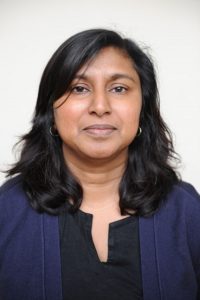
Congratulations to Prof Kammila Naidoo who has been appointed as the Executive Dean at the Faculty of Humanities at UJ.
Professor Naidoo brings with her a wealth of institutional knowledge and academic experience. Since joining the Sociology Department of the University in 2010, she was appointed as the Head of the Sociology Department in 2013 and subsequently as Vice Dean: Research of the Humanities Faculty in 2017. She has been acting as Executive Dean: Humanities since November 2019.
Professor Naidoo is an accomplished scholar, which is demonstrated through her extensive publications in peer-reviewed journals, book chapters and reports. Furthermore, she is the recipient of various national and international scholarships and grants, and served as a member on a number of advisory and editorial boards.
Her qualifications include a PhD in Sociology and Development Studies (University of Manchester) and a Masters’ in Sociology (the University of Durban-Westville; now UKZN). Her research focuses primarily on the intersecting areas of gender relations, family, intimate partner violence, sexual and reproductive dynamics, as well as the changing politics of communities in transition.
We congratulate Professor Naidoo on this appointment, and wish her a successful, fulfilling and enjoyable employment experience at the University of Johannesburg
March 2020
Congratulations to Prof Ashwin Desai with his fabulous new book “Wentworth: The beautiful game and the making of place”.

January 2020
Visiting of Professor Indira Ramarao, Former Chair of the Department of Sociology, University of Mysore, India. In this photo, she is visiting the Apartheid museum with Dr Trevor Ngwane.
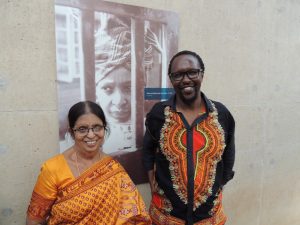
January 2020
Congratulations to three of our staff members who received their PhDs.

Dr Letitia Smuts
Getting it ‘Straight’: (Hetero)sexual Identities, Heteronormativity, and Gender in Johannesburg, South Africa.
Vrije University (VU), Amsterdam, The Netherlands
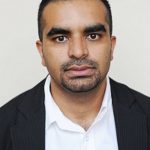
Views of Muslim Religious leaders on Violence Against Married Women
University of Johannesburg

Dr David du Toit
Cleaning up: A sociological investigation into the use of outsourced housecleaning services in South Africa
University of Stellenbosch
November 2019
Congratulations to Prof Pragna Rugunanan who has been rated C2 by the NRF.

September 2019
Prof. Ashwin Desai Amazing had an interview on Mela on SABC 3 talking about Biko and the Black Conscious Movement. Ashwin shared his vision about transcending our limited identities and joining in something much bigger, generous, and life-giving. Congratulations Ashwin! You are an inspiration and we are proud to have you in our department! Please click on the link for the full interview: https://www.youtube.com/watch?v=q0whqTgZKbQ

July 2019
We have a new SASA president in the department. Congratulations to Dr Trevor Ngwane for being appointed as president of SASA and to Ms Letitia Smuts for being appointed as the treasurer. Congratulations!
March 2019
Dr Siphelo Ngcwangu participated in the Knowledge Sharing workshop at Wits University on the 4 and 5 March, which was the culmination of our project ‘Higher Education Inequality and the Public Good in Four African countries: South Africa, Nigeria, Ghana, and Kenya’.
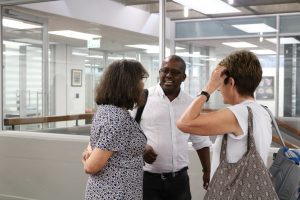
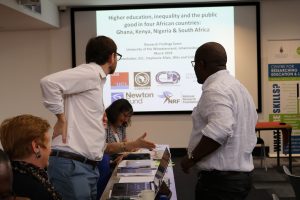
February 2019
Congratulations to Shandre Hoffmann who received the prestigious Mandela Rhodes scholarship

Shandré Hoffmann completed her undergraduate degree in Psychology (with distinction) and is currently completing her Honours degree in Industrial Sociology – both at the University of Johannesburg. As an advocate for life-long learning, Shandré intends to fulfil her career ambition of becoming a lecturer to inspire South African youth to the life-changing potential of education. She is passionate about the discipline of Sociology as it has encouraged her to engage critically with the world around her, opening her mind to new ideologies and cultivating an appreciation of diversity.
2019: In loving memory of Prof Cecilia van Zyl-Schalekamp
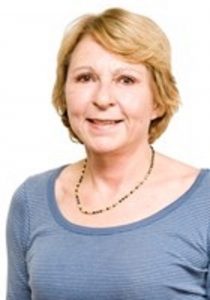
Prof. Cecilia Van Zyl-Schalekamp passed away in January 2019. She was an associate professor in the department for many years.
Congratulations to the following UJ Sociology staff members who received ratings from the NRF

Prof Tina Uys: B3

Prof Carin Runciman: Y1
2018 Staff photo
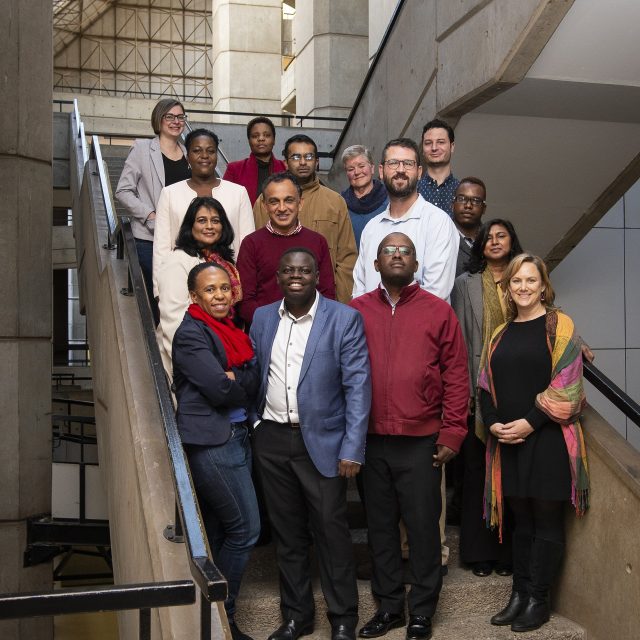
Prof Malehoko Tshoaedi; Prof Tapiwa Chagonda; Dr Siphelo Ngcwangu; Prof Ingrid Palmary; Prof Kammila Naidoo; Mr Lerato Kgosiemang; Dr Luke Sinwell; Prof Ashwin Desai; Prof Pragna Rugunanan; Prof Kezia Batisai; Mr Muhammed Suleman; Prof Tina Uys; Mr David du Toit; Prof Grace Khunou; Ms Letitia Smuts
2016 Year-end Function
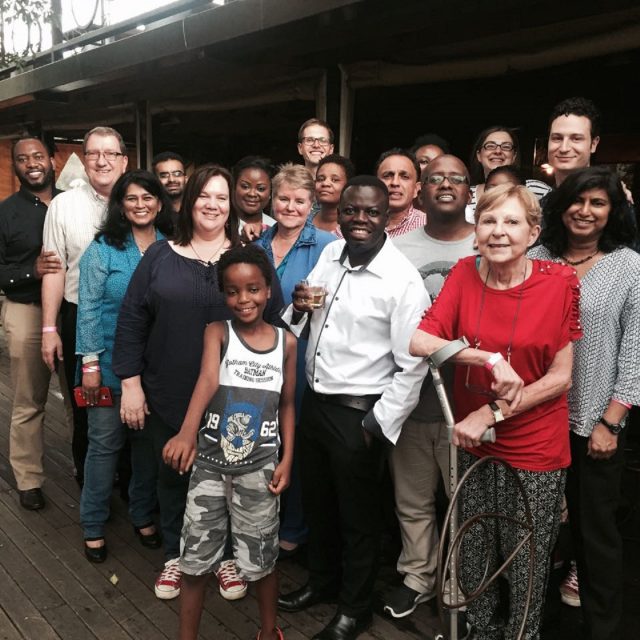
View more
Launch of the UJ Sociology & Anthropology Wednesday Seminar 2009 Series
2007 Popular Politics workshop (organised by Marcelle Dawson)
Annual departmental prize-giving function: 2007
Annual departmental prize-giving function: 2006
Rusty and Hilda Bernstein visit the UJ Sociology Department in 2001
2008 Citizenship & Social Capital workshop
Oxford University’s Rhodes Chair of Race Relations visits UJ Department of Sociology
SASA conference 2008

